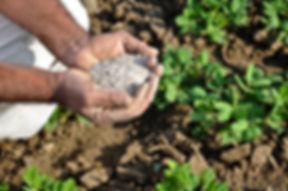
Organic farming entails "agricultural production systems that do not use genetically modified (GM) seed, synthetic pesticides or fertilizers".
Organic farming originally begin back in the days of Mesopotamia when humans transitioned from a hunter gather lifestyle into a stationed based lifestyle. These humans farmed without any chemicals, additives etc. Some others argue that organic farming is done not by default but through intent. The main consensus however remains that organic farming begin back during the beginning of times. During the 1940s use of pesticides and other chemicals in agriculture became common use. During the 1960s and 1970s organic farming became more popular as people begin to become more observant about the content of their foods. The International Federation of Organic Agriculture was started in 1972. Since then organic farming has been on the rise. According to a study done in 2004, more than 24 million hectares of agricultural land is used for organic farming.
Environmental- Organic farming provides great environmental benefits. Organic farming usually involves practices such as minimum tilling, water management practices, habitat conservation and maintanece, and biological pest control. All of these practices are beneficial to the environment.
Social- Organic food can be found in most grocery stores, famers markets, and specialty food stores. Organic food and farming makes up a portion of many modern environmental issues and movements. The Agroecology farm provides food to the dining halls here on campus.
Economic- Organic Farming makes up about four percent of all the U.S. food sales. Organic products profited about 28.4 billion dollars in 2012. The Agroecology farm can also receive profits if they choose to sell their products.